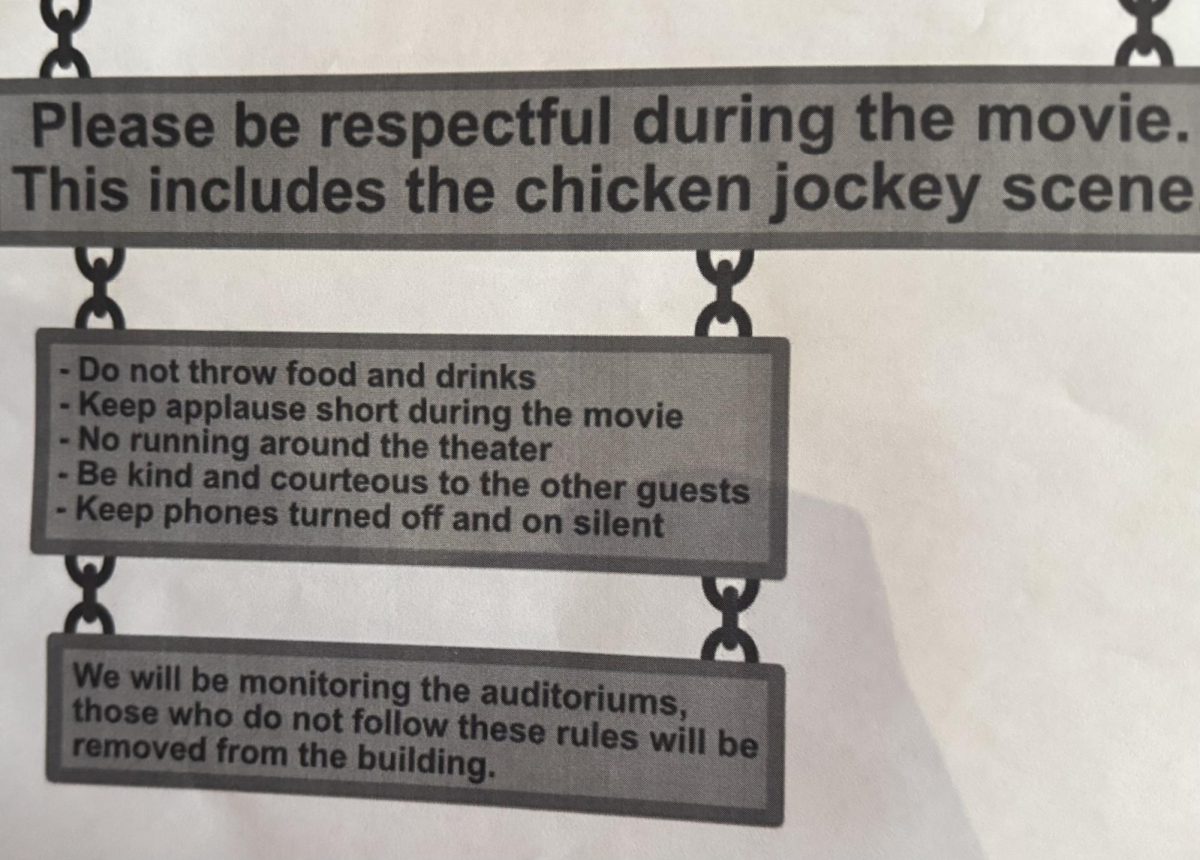In light of the controversy surrounding the event entitled “Difficult Conversations,” we, the co-chairs of J Street U, feel the need to both present our perspective and argue for what we believe should be the result of this event. We hope to address lingering questions about the event, and ask everyone on this campus to think more about what we can do to end the Israeli occupation and create a two-state solution. When it comes to the Israeli-Palestinian conflict, people often talk past each other rather than with each other. We firmly believe that working together and creating political change is the only real path to ending the occupation and fostering a more just, secure future for Israelis and Palestinians alike.
This is why we brought Walid [Issa] and Lior [Frankienstzajn] to begin with. Both speakers are committed to making change for the benefit of their children and the well-being of their neighbors. We share this commitment to political change. This commitment is what brings us to engage with both Macalester Students United for Palestinian Equal Rights (MacSUPER) and the Jewish Community Relations Council (JCRC), organizations we have worked with in the past and will work with in the future.
Our desire for a better political future also explains why we were deeply dismayed and disappointed that both the JCRC and MacSUPER sought to turn this event into a conversation about the conversation about the conflict, about who was included and who was excluded. This undercut the important worthwhile statements Lior and Walid made about the situation on the ground, the unsustainability of the status quo and the changes that need to be made. And this refocusing diluted our reason for bringing these speakers, and why we at J Street U do this work: to have serious conversations about the occupation and invoke multiple narratives, and seek to end a conflict that has so dramatically damaged the lives of so many people.
The actions of the JCRC leading up to the event show just how broken this conversation is. During the planning process, the JCRC explicitly told J Street U to reach out to other groups on campus engaging with the Israeli-Palestinian conflict. The JCRC’s only requirement was that co-sponsors could not support the Boycott, Divestments and Sanctions (BDS) movement. Whether or not you agree with these standards of partnership, we did not violate these standards by asking MacSUPER to co-sponsor. It was only after we reached out to MacSUPER and received a “yes” that the JCRC told us that MacSUPER did not meet its criteria. If the JCRC wants to set criterion for partnership, that is the council’s prerogative. However, it is also the JCRC’s responsibility to be transparent.
Instead, when questioned, the JCRC changed its story. When MacSUPER inquired about the co-sponsorship exclusion, the JCRC said that the exclusion wasn’t about their policies, but rather about a timing issue. Members of JCRC then told us, the J Street U leadership, that they did not expect us to tell other students on our campus that their guidelines prevented them from co-sponsoring this event with MacSUPER. By applying their guidelines for co-sponsorship without transparency, the JCRC inserted unproductive tension, all but compromising our ability to bring a meaningful conversation to this campus.
However, if all we do in the wake of this event is focus on the actions of the JCRC, we fail to take the opportunity to evaluate what we on campus must do to work towards justice. We must ask why this event stirred so much controversy as compared to other Israel-Palestine-related events on campus. We must ask why we spent the last few weeks having a conversation about the conversation rather than taking action. Though we believe that dialogue is not an end in itself, we brought these speakers because we know dialogue is a crucial step toward understanding the costs of the occupation to both Israelis and Palestinians. And so, we need to ask not only how the conversation around Israel-Palestine is broken in the larger community, but also how this conversation is broken here at Macalester.
We hope that this is a message that MacSUPER will also heed. In the pamphlet they passed out at the event, they wrote, “Open dialogue is a key part of MacSUPER’s charter and we decisively feel that this event is a roadblock to this goal.” If this is in fact a part of their charter, then MacSUPER needs to re-evaluate who they are bringing to campus.
Earlier this year, MacSUPER brought a slam poet named Remi Kanazi who, as a supporter of the anti-normalization movement, is explicitly against dialogue. If anti-normalization were to take hold on this campus, then there would not be a debate as to MacSUPER’s co-sponsorship of events such as ours at all. In recognizing an Israeli narrative, our event would be out of bounds.
If MacSUPER is committed to dialogue, as they have stated, and to the inclusion of all voices and perspectives on the conflict on our campus, then we are hopeful that our event, and the controversy surrounding it, puts the anti-normalization question on our campus to rest. We also hope that, as MacSUPER continues to bring a wide variety of voices to campus, they advocate for their organizational values by publicly challenging guests when they act against the cause of open dialogue and partnership.
It would be easy for us to stop here, to set the record straight and air our grievances. But doing so would mean we learned nothing from the “Difficult Conversations” event. We refuse to allow a conversation about the conversation to compromise the important message Lior and Walid shared about how they are working to end a conflict that is putting their family, their friends and their nations in danger. Therefore, as we maintain our commitment to fixing this conversation on campus, we also move forward with action.
Every day, we at J Street U are examining power dynamics in this country that make it easier to perpetuate this conflict than end it, and we are working to change those dynamics. We’re pushing for organizations claiming to act in Israel’s best interest to be transparent about funding that goes toward problematic projects in the West Bank. We’re lobbying our representatives to reaffirm America’s commitment to a two-state solution and opposition to unilateral steps on all sides that prevent it.
While many of those who attended were concerned about who was and wasn’t on the flyer, Walid and Lior were concerned that this conflict will claim the lives of their children. Those committed to Israeli and Palestinian prosperity should seriously examine which of these two concerns is more important. Going forward, let’s start asking ourselves another question: what have you done this week to make sure future generations in Palestine, Israel and beyond do not inherit this conflict? We at J Street U are committed to answering this question, and to inviting our campus and our communities to join us in this project. We are thus hopeful that our last event, and the unfortunate controversy surrounding it, will ultimately bring us all to take action to end the occupation, not just argue about how we talk about it.







Dylan Ogden • Sep 11, 2019 at 2:27 am
some genuinely nice and utilitarian info on this site, too I believe the design holds excellent features.
Carl McLean • Sep 6, 2019 at 1:59 pm
Quality articles or reviews is the key to invite the visitors to pay a quick visit the web page, thatís what this web site is providing.
NativeDeodorantcoupon • Jul 30, 2019 at 8:41 am
Fantastic article, some a lot of hard work spend here. My personal favorite strategy so far may be the your textual content!
PeterPiperPizzapromo • Jul 30, 2019 at 4:22 am
Bears anyone got any genuine success from HARO? It only feels that the majority of of the reporters mounted on the organization are usually from the us which have no much expectations from other places in particular within South Asia. Brian, can you one on one me personally to any case studies? Thanks.
SkyZonecodes • Jul 29, 2019 at 5:37 pm
outstanding post mate, although there is certainly an issue along with backlinking in terms of e-commerce.